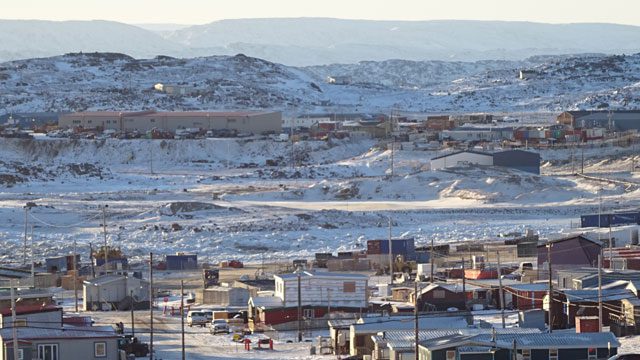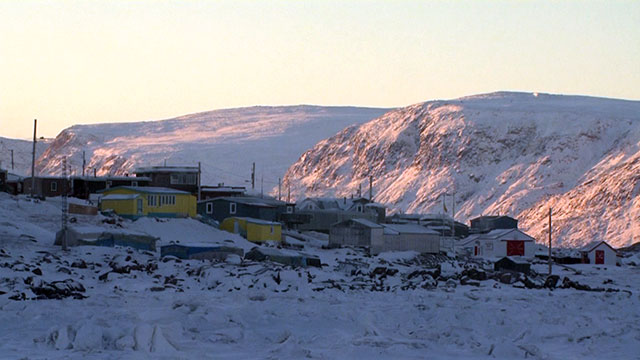
It’s one of the few bright lights in a dark story.
Nunavut has managed to turn its northern isolation and lack of connecting roads – normally cited as a contributor to sky-high suicide rates, food prices and air fares – into a successful defence against the deadly novel coronavirus that has killed thousands of people around the world.
But it’s only one confirmed case away from erasing its natural social distancing.
“It has the potential to spread like wildfire,” said Nunavut MP Mumilaaq Qaqqaq, thinking of how too many people live in too few houses without doctors or hospitals.
“There are only seven (oxygen) ventilators. That’s how ill-equipped we are.”
So far, the Arctic territory of 39,000 people in 25 communities has successfully closed its borders to potential cases arriving on incoming flights.

(Mumilaaq Qaqqaq is the lone MP for all 25 communities in Nunavut. APTN file)
Residents returning from medical treatment in the south must self-isolate for 14 days at designated quarantine hotels in Yellowknife, Edmonton, Winnipeg and Ottawa at the territory’s expense to ensure being symptom-free.
Essential workers like police officers and medical staff need a note from the chief public health officer to enter the territory, which is roughly the size of western Europe.
“The fact is that COVID-19 has the potential to have a much greater impact on Nunavut than other jurisdictions,” said Nunavut’s chief public health officer Dr. Michael Patterson.
“What we can’t have happen is a large number of people showing up at the hotels unannounced or unknown. We will not be able to ensure that Nunavummiut can return safely and efficiently if that happens.”
It’s not Nunavut’s first experience with an infectious disease. That same housing shortage is blamed for continuing cases of tuberculosis, which has been mostly wiped out in other parts of Canada.
“There are a lot of ‘have nots’,” Qaqqaq said in a telephone interview, explaining why she took her concern to Twitter last week.
“NU has glaring gaps on so many levels which makes our communities so vulnerable during these times,” she tweeted. “I will need the public’s assistance in spreading information as there are updates and this situation continues.”
Poverty, low graduation rates and lack of jobs were some of the issues that propelled Qaqqaq to run for a seat in Parliament six months ago on a platform of “human rights” for Nunavummiut.
“People have to decide every day whether to buy food or pay their rent,” she said, noting neither do they have doctors, emergency medical services or hospitals.
Now those ‘glaring gaps’ are being laid bare by how it holding back a plague that is spreading around the world.
“That’s what everybody is concerned about,” she added.
Nunavut’s healthcare system and food supply depend on air transportation. Pregnant women and sick elders are routinely flown south to give birth and receive treatment not available in their home communities.
COVID-19 tests, as well, are flown in to Nunavut and then back to Winnipeg for diagnosis.

(Nunavut is the second-least populous of Canada’s provinces and territories. APTN file)
But the usual passenger service between communities has been severely restricted to reduce exposure to the virus.
That’s why Inuit Tapariit Kanatami (ITK), a national advocacy organization, said last week airlines should be designated an essential service in Canada’s 53 Inuit communities during the pandemic.
Those communities are in four regions known as Inuvialuit (northern Northwest Territories), Nunavut, Nunavik (northern Quebec) and Nunatsiavut (northern Labrador).
READ MORE: COVID-19 PANDEMIC
Qaqqaq, who used to work for ITK, agrees.
“Many remote communities depend on long travels to the south to receive basic health care treatment because of the lack of services on homelands,” she said in a release.
“People are worried about the lack of necessary facilities and services to help face the pandemic. This is where the government needs to have a plan that fits our reality. And act quickly.”
Inuit will see $45 million of the $305-million Indigenous pandemic aid from the Trudeau government, to be distributed via the four Inuit land claim organizations.
One of the first to get funds are hunters tasked with getting country food for their communities.










